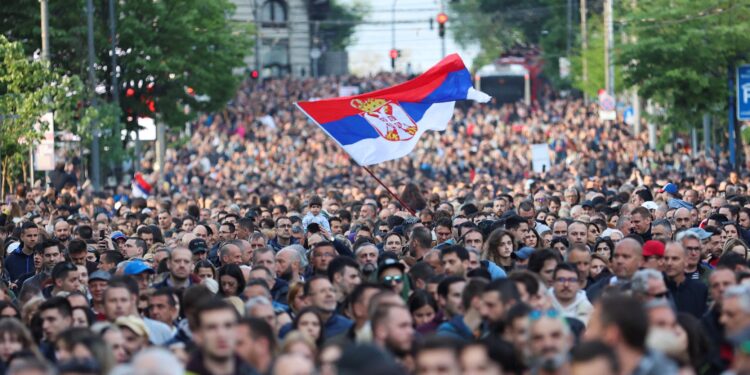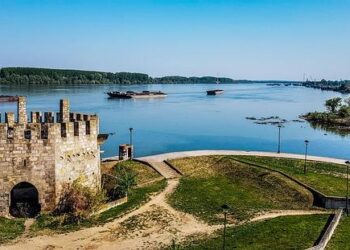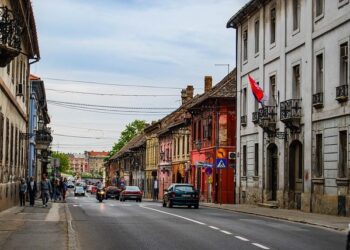Thousands of demonstrators gathered across Serbia this week, staging large-scale protests against the government amid escalating tensions. Participants accused police forces of using excessive brutality during the anti-government rallies, raising concerns over human rights and state accountability. The unrest reflects deepening dissatisfaction with the administration’s policies and handling of civil dissent, as authorities grapple with mounting public pressure and calls for reform.
Serbia Protests Escalate as Thousands Demand Government Accountability
In a dramatic turn of events last weekend, thousands of protesters flooded the streets of Belgrade, voicing their discontent against the current administration. The demonstrations, which began peacefully, quickly intensified as clashes between protesters and law enforcement escalated. Demonstrators demanded increased transparency and accountability from government officials amidst allegations of corruption and mismanagement. Protest leaders also condemned the perceived erosion of democratic freedoms, calling for immediate reforms and an end to suspected abuses of power.
Amid the chaos, reports surfaced accusing the police of using excessive force to disperse the crowds, with multiple eyewitnesses describing aggressive tactics ranging from baton charges to unwarranted arrests. Human rights organizations have since called for independent investigations into these allegations, highlighting concerns over citizens’ rights to peaceful assembly. The government, meanwhile, has defended the police actions as necessary to maintain public order, creating a sharp divide in public opinion. Below is a summary of key protest developments:
| Date | Location | Number of Protesters | Police Response |
|---|---|---|---|
| April 20, 2024 | Belgrade City Center | 5,000+ | Riot Control Units Deployed |
| April 21, 2024 | Novi Sad | 2,000+ | Several Arrests Reported |
| April 22, 2024 | Niš | 1,200+ | Use of Tear Gas Confirmed |
- Key grievances: allegations of corruption, lack of transparency, press censorship
- Police accusations: brutality, aggressive crowd dispersal tactics
- Government stance: maintaining law and order, denying excessive force
- Human rights response: calls for independent probes and safeguarding of protest rights
Allegations of Police Brutality Ignite National and International Concern
Reports of excessive force have stirred widespread outrage both within Serbia and across the globe following recent anti-government gatherings. Eyewitness accounts and video evidence circulated on social media platforms depict confrontations where demonstrators faced baton charges, tear gas, and rubber bullets. Human rights organizations have condemned these tactics, emphasizing a grave violation of citizens’ rights to peaceful assembly. The backlash sparked by these incidents has placed the government’s handling of public dissent under intense scrutiny from international watchdogs.
Several key concerns have emerged in public discourse and official inquiries, highlighting:
- Unverified arrests and detentions without clear charges
- The use of disproportionate force against nonviolent protesters
- Reported instances of medical neglect for injured demonstrators in custody
- Calls for an independent investigation into police conduct
| Region | Reported Incidents | International Response |
|---|---|---|
| Belgrade | Over 150 | Condemnation & Demand for Inquiry |
| Novi Sad | 30+ | Calls for Peaceful Dialogue |
| Global | N/A | Statements from Human Rights Groups |
Calls for Independent Investigations and Increased Oversight of Security Forces
Amid the mounting public outcry, activists and opposition leaders have intensified their calls for a transparent and independent investigation into the alleged use of excessive force by security personnel during recent protests. Demonstrators argue that impartial probes are essential to restore public trust and hold accountable those responsible for any misconduct. The demand for external oversight bodies stems from widespread skepticism towards internal investigations, which critics say have historically shielded law enforcement agencies from scrutiny.
In response, civil society organizations have proposed several key reforms aimed at increasing accountability:
- Establishment of an independent oversight commission with civilian members.
- Mandatory use of body cameras during policing operations.
- Regular publication of transparent reports on police conduct.
- Enhanced training programs focusing on human rights and de-escalation techniques.
| Proposal | Objective | Expected Impact |
|---|---|---|
| Independent Oversight Commission | Ensure impartiality in investigations | Restore public trust |
| Body Cameras | Document police interactions | Increase transparency |
| Regular Reporting | Monitor police conduct | Accountability boost |
| Human Rights Training | Enhance law enforcement ethics | Reduce incidents of brutality |
In Conclusion
As protests continue to unfold across Serbia, the calls for accountability and justice remain loud and persistent. With thousands rallying against the government and allegations of police brutality escalating tensions, the situation highlights deep-rooted divisions within the country. Authorities have yet to provide a full response to the accusations, leaving the nation at a critical juncture as demonstrations show no signs of abating. The international community and human rights organizations are watching closely, underscoring the broader implications for Serbia’s political stability and civil liberties moving forward.
















